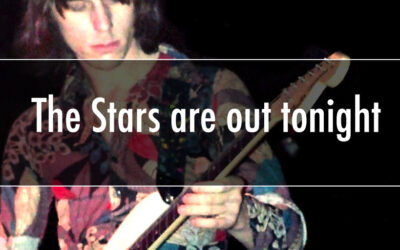
This week, I am giving the floor to a FB friend of mine called Nik Harrison… Who is Nik I hear you ask… Well… “I teach music (piano, guitar, theory, GCSE, A Level etc) but I also teach thinking skills. Critical thinking, applications of (and limitations of) logic, exam revision etc. Also do commentary and debates on various matters concerning philosophy etc for educational purposes, and “thinking horizon expansion”. Play acoustic gigs. Do demos at guitar shows for Stormshadow guitarworks. Run the contemporary guitar performance workshop, and conduct quite a lot of pedagogical (relative to teaching) research for that. Occasionally go out as a professional magician for corporate functions… A pretty broad range.”
This all came about because I saw a question on FB… “Why is it called music theory? Shouldn’t it be called music rules?”
And Nik answered… “Music theory is the codification of the most commonly used frameworks within music. It’s a language, and as a language, it’s essentially a set of protocols. It’s not the ‘message’. The message is the music, and the music exists independent of any language that we may use to explain, quantify, or record it (which is essentially the three things that music theory serves to achieve). The music comes first. It’s for theory to keep up with music, not for music to keep up with the theory, or otherwise be dictated to by ‘theory’. Rules are for sports.”
I was quite fascinated with this response, so I asked him to expand on it for our blog… Over to you Nik…
There are essentially two means by which a ‘music theory’ may be devised (inclusive of the amalgamation of both). Firstly, there’s the analysis and quantification of music that people have created when drawn to the sounds and structures that they instinctively feel to be congruent with their musical taste. Secondly, you can take the fundamentals of sound itself, and analyse this. The only naturally occurring phenomena which could be used as a foundation for creating a music theory is the harmonic series. This would lead us to consider the overtone scale (or Lydian Dominant mode) to be the most ‘natural’ place to start, but we don’t do that, we use other things. What may be ‘natural’ may not always be (what we would identify as) ‘musical’ to some people… To my understanding, most ‘scales’ that we now consider to be commonplace evolved by means of primitive instrument engineering evolving to accommodate greater pitch accuracy, together with the influence of the harmonic series which supplied an acoustic physics-based foundation for the subdivision of octaves.
In extension of this, it’s worth noting that the only thing that makes music theory conversations and debates worthwhile is the fact that it’s in a state of permanent evolution. This means that right and wrong are not as clear cut as they may be when debating other topics. To suggest that ‘rules’ come into music theory would require consensus amongst academics and scholars alike who are not actually qualified (either individually or collectively) to ascribe ‘rules’ to such a topic as music theory. This is because music (and its associated theory) belongs to the people. It doesn’t belong to academia, no matter how much it may be implied, or how much academia may attempt to take ownership of it. Music theory is very much a living and breathing ‘language’. Worthy of note however, is that music itself isn’t a language. This is a common misconception, but it isn’t a language because music isn’t authoritatively definable in terms of the same criteria (and respective fulfilment thereof) that a language would need to fulfil (and adhere to) in order that it may be defined as a ‘language’. Analogies between music and languages might work at a very simplistic level, but there are a number of misconceptions, misunderstandings, and errors that are all too easy to make if this analogy is taken beyond the simplest of examples. Within a language the objective of communication is served by means of encoding meaning and concepts into syntax which is then assembled within a grammatical framework. There are a number of pre-requisites which need to be in place before it can be understood.
When it comes to music, the pre-requisites that are necessary for any spoken or written language to be successful don’t exist (unless you’re operating from a number of assumptions regarding a very fixed definition of what music can be). As such, music doesn’t operate in the same way, or within the same parameters as ‘languages’. A listener needs no familiarity with any ‘encoding’ of meaning to understand the inherent ‘truth’ that is music, and this makes the formulation of any manifestation of “music theory” all the more complicated, challenging, and interesting.
Music evolves, and always came first. Theory comes second, and has only been devised (and subsequently evolved into the language of music that we now use) as a method by which we express, record, and preserve music. Because music is evolving, the language that we use to explain it needs to evolve with it, although because of the rate at which music evolves, theory will always be “behind”, not at all helped by academics who misunderstand the true relationship “music” has to “theory”, who seem to desire it’s absolute preservation and maintenance (without really offering any consideration as to how appropriate this actually is). I would suggest that an understanding of music and the understanding of theory are two very different things. They are every bit set apart in the same way that and understanding of “meaning” is not the same as an understanding of “language”.
Within a system where 15 key signatures are used to express 12 keys, any engineer would conclude that this is 3 too many than necessary and it’s about time we just got rid of them. I know where these key signatures have come from, and have a strong understanding of why we have ended up with 15 key signatures, but since evolution is a process of simplification, not complication, I think we can reasonably predict what will happen here as theory evolves anyway, so why don’t we just dispose of 3 unnecessary key signatures now? A more prominent over-complication in music theory can be seen in the time signature. Where the bottom “number” which is used represents a note value, why has it gone through an unnecessary process of “encoding” into a number? Why don’t be just draw the note value as it would appear in the piece underneath the number telling us how many beats are in each bar?
To my mind, not enough people challenge these theoretical concepts and as such, I fear that it’s best hope of “catching up” with the music (which theory actually serves to record, explain, and preserve) is being systematically eroded by every music theory publication presenting this information and framing it as “the way it is” rather than thinking about it and offering appropriate consideration to what kind of future it actually has?
Thank you Nik! You can connect with Nik on Facebook.



Wow, really insightful reading this as an amature music producer, having never really dived into music theory, I just did what felt right. Music is intrinsic, babies will bop their heads to music instinctively, birds will sing in time and tune to music I am playing. A barbers I would get my hair cut at, had a budgy which would sing its heart out in time to D’n’B. Two major discoveries for me in my musical journey are that it is chromatic, and it is fractal. Much like the universe ????
Thank you ????????
the·o·ry
/ˈTHirē/
noun
a supposition or a system of ideas intended to explain something, especially one based on general principles independent of the thing to be explained.
Music is not a theory. It is a set of rules. How music affects your brain is a theory.
Music as far as I know can be written down and follows rules of nomenclature. So what is there to theorize about ? There is no theory.
Now how music affects your brain and makes you feel ecstatic or for music you don’t like it sounds like noise. If you can explain that and how different people like and dislike the same music. Then that is a theory of how the brain reacts to music.